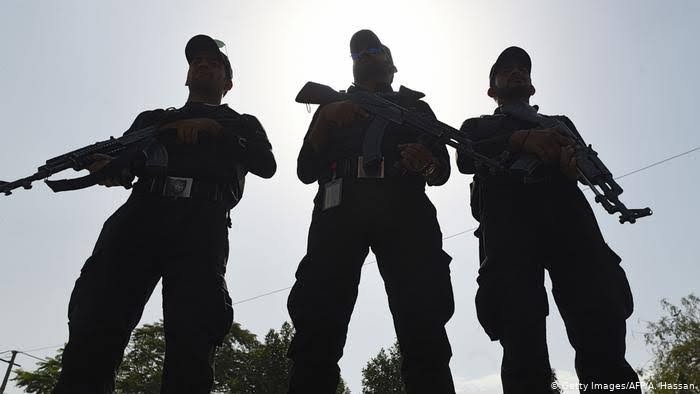Mali’s Military Captures Key IS Leaders in the Sahel Region
The captured Abu Rakia and Abu Hash are believed to have masterminded a series of deadly attacks in the Menaka and Gao regions.

Mali’s military has announced the successful capture of two high-profile figures linked to the Islamic State (IS) group in the Sahel, marking a significant victory in its fight against terrorism.
The suspected Jihadists, Mahamad Ould Erkehile, known as Abu Rakia, and Abu Hash, a key IS leader in the region, were apprehended during recent operations in northern Mali.
In a statement released on Jan. 5, the Malian Armed Forces revealed that their forces had killed several terrorists in the northern part of the country during the operations.
The captured Abu Rakia and Abu Hash are believed to have masterminded a series of deadly attacks in the Menaka and Gao regions. These attacks targeted both civilians and military personnel, causing widespread fear and instability.
The military described Abu Hash as a prominent figure within the Islamic State in the Greater Sahara (ISGS), responsible for orchestrating coordinated assaults, including those directly aimed at Malian troops.
“Principal investigations confirm that he collaborated actively with Abu Huzeifa and Osama Madalo, two terrorist leaders who were previously neutralised,” the statement said.
The arrests are expected to yield critical intelligence on ISGS’s operations and networks across the Sahel. Security experts believe this could provide insights into the group’s funding, recruitment, and logistical strategies, potentially enabling further counterterrorism successes in the region.
The operation also sends a strong message about Mali’s commitment to restoring security and stability despite ongoing challenges. It also highlights the military’s increasing reliance on its own capabilities and support from non-traditional allies like Russia.
Since 2012, Mali has grappled with a persistent insurgency fueled by extremist groups affiliated with Al-Qaeda and IS. These groups have exploited political instability and vast ungoverned spaces to launch attacks, particularly in the northern and central regions.
Initially reliant on support from France, Mali has shifted its alliances in recent years. In 2022, the transitional government severed diplomatic ties with its former colonial power, citing dissatisfaction with France’s counterterrorism efforts.
Mali has since strengthened its partnership with Russia, securing military assistance to bolster its fight against terrorism.
The Sahel region, where Mali belongs, has become a hotspot for extremist violence, with countries like Burkina Faso and Niger also facing similar threats. Both countries have severed ties with France and expelled its troops from their Counter-terrorism efforts.
However, the governments in those countries have struggled to contain the violence, which has displaced millions and claimed thousands of lives.
Mali's military has achieved a significant success in its counterterrorism efforts by capturing two key figures associated with the Islamic State (IS) in the Sahel. Mahamad Ould Erkehile, also known as Abu Rakia, and Abu Hash were apprehended during operations in northern Mali. These individuals have been linked to organizing deadly attacks in the Menaka and Gao regions, targeting both civilians and military forces, and are considered instrumental within the Islamic State in the Greater Sahara (ISGS).
The arrests are anticipated to provide valuable intelligence on the ISGS's operations and strategies in the Sahel. This could facilitate greater counterterrorism victories by revealing insights into the group's funding and recruitment processes. The operation underscores Mali's dedication to reinstating security, with increased reliance on its capabilities and support from allies like Russia. Mali's shift from France to Russia for military support highlights ongoing challenges in combating extremist violence within the region, with countries like Burkina Faso and Niger experiencing similar security issues.
Support Our Journalism
There are millions of ordinary people affected by conflict in Africa whose stories are missing in the mainstream media. HumAngle is determined to tell those challenging and under-reported stories, hoping that the people impacted by these conflicts will find the safety and security they deserve.
To ensure that we continue to provide public service coverage, we have a small favour to ask you. We want you to be part of our journalistic endeavour by contributing a token to us.
Your donation will further promote a robust, free, and independent media.
Donate HereStay Closer To The Stories That Matter




